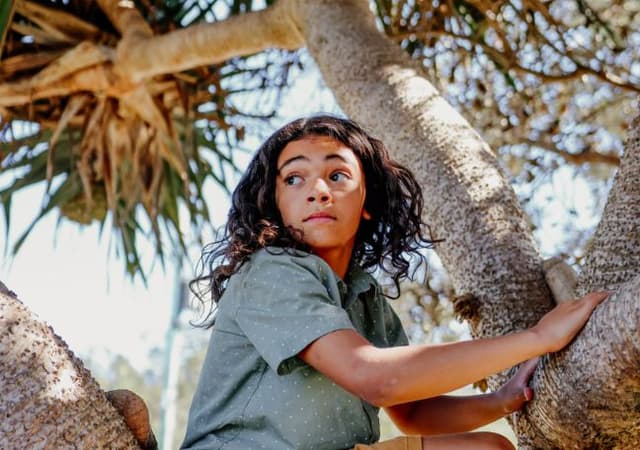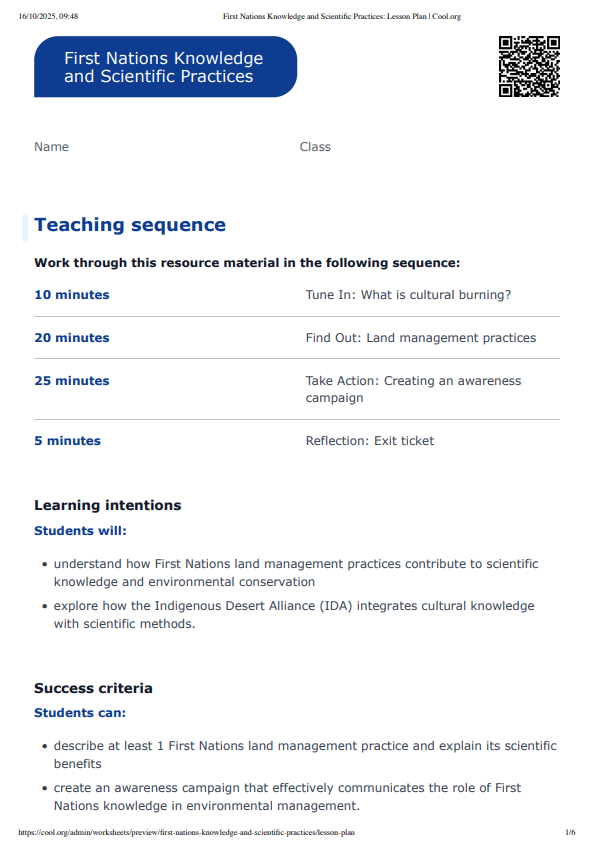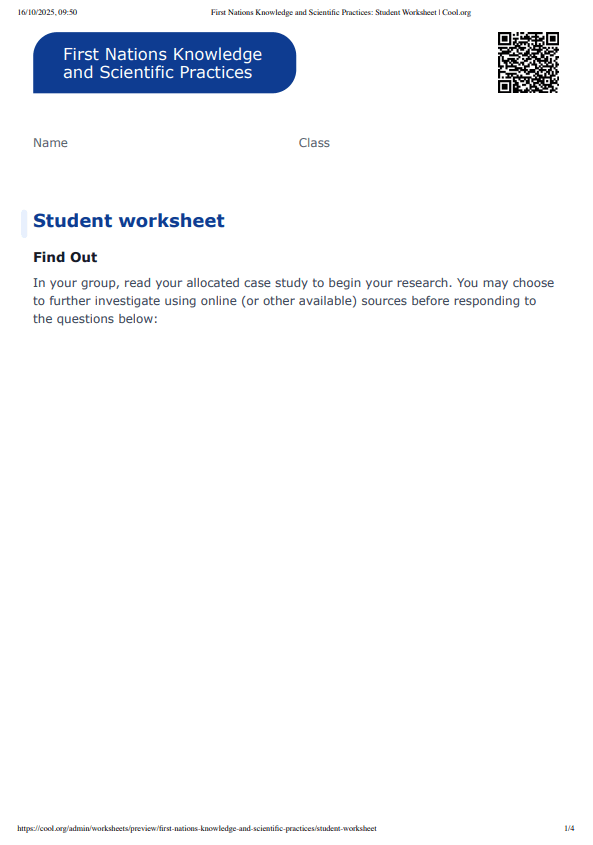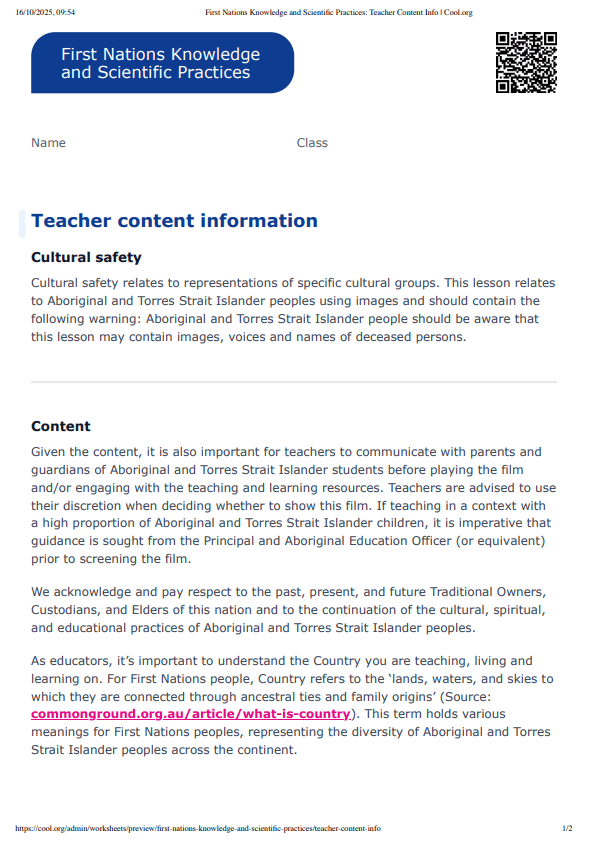Learning intentions
Students will:
- understand how First Nations land management practices contribute to scientific knowledge and environmental conservation
- explore how the Indigenous Desert Alliance (IDA) integrates cultural knowledge with scientific methods.
Success criteria
Students can:
- describe at least 1 First Nations land management practice and explain its scientific benefits
- create an awareness campaign that effectively communicates the role of First Nations knowledge in environmental management.



